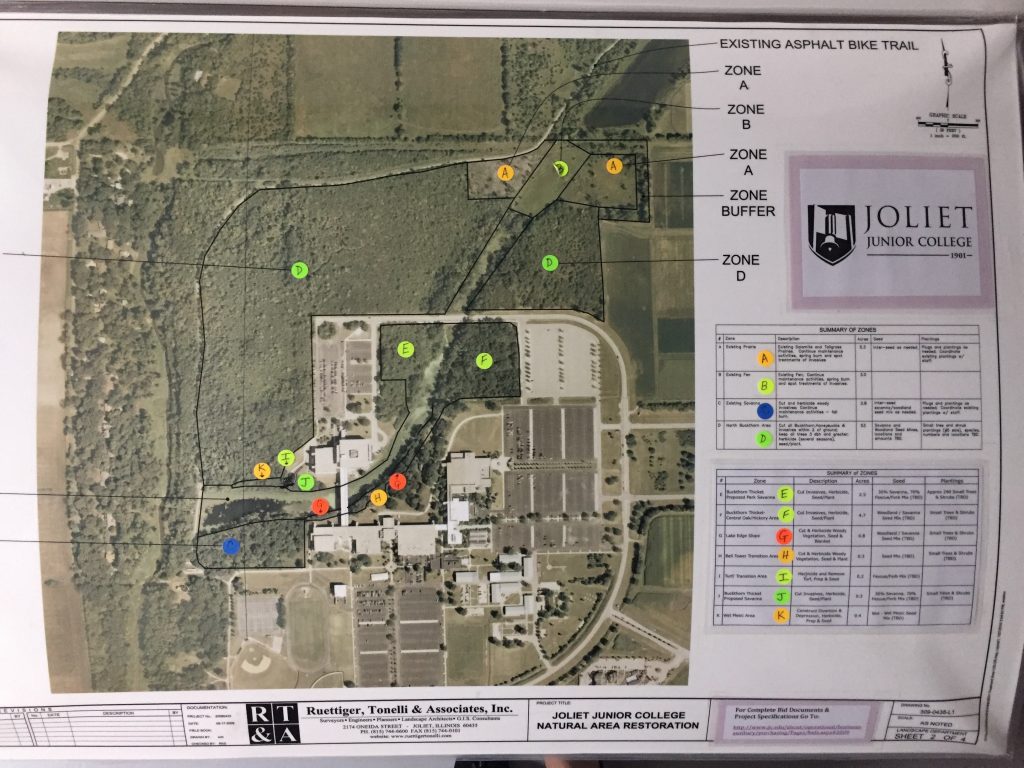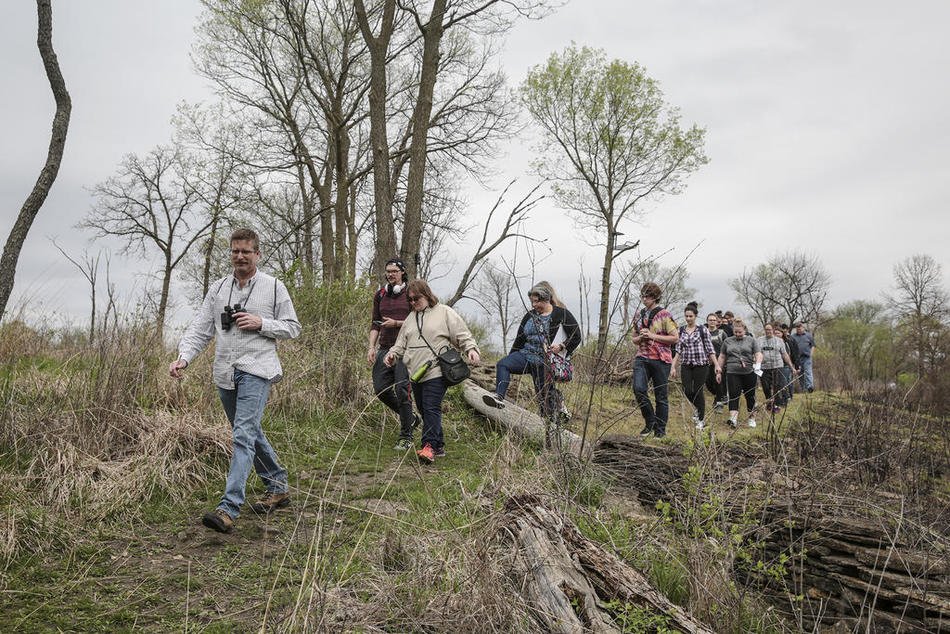This is an open letter I wrote recently to the leadership of Joliet Junior College in my hometown of Joliet, Illinois. The issue at hand is a future road extension, proposed by a mall developer, that would bisect the protected natural areas of the JJC Campus and compromise a rare type of Illinois wetland. The proposed roadway has galvanized support for the JJC Fen and associated natural areas on campus and in the Joliet community, as the College’s Board of Trustees debates how to proceed.
13 June 2017
Dear President Judy Mitchell and Board Chairman Bob Wunderlich –
I write to you today as a citizen of Joliet, a longtime environmental educator, and the son and grandson of JJC graduates. My overall message to you and your colleagues on the JJC Board of Trustees is simple: I strongly support the view of the JJC Natural Areas Committee and numerous faculty, students, alumni, and community members that the JJC Fen and associated open/natural areas must be protected from the proposed road extension by Cullinan Properties.
Since its settlement began in the late 18th and early 19th centuries, Illinois has lost over 90% of its natural wetlands to agricultural and urban development. In the meantime, it has built what must be millions of miles of roads, many of which are deteriorated and no longer in use. In short: we have enough roads. We cannot afford to lose yet more high quality wetlands.

As the above map illustrates, the proposed County Road Extension is neither the shortest nor the most convenient traffic route from the adjacent I-55 and I-80 interstates to Cullinan’s proposed “mixed-use lifestyle center” — yet even if it were, it would not be the best route. As the great writer, ecologist, and conservationist Aldo Leopold famously wrote in his 1949 book A Sand County Almanac, “A thing is right when it tends to preserve the integrity, stability, and beauty of the biotic community. It is wrong when it tends otherwise” (pp. 224-5).
The importance of JJC’s high quality open spaces, biodiversity, water quality, landscape aesthetics, and overall campus sustainability far outweigh the supposed advantages of this road extension, which serves no other purpose than to direct traffic to a shopping center that could otherwise take several other perfectly viable alternative routes that are faster and more direct.

As the College mulls over the tempting overtures of Cullinan Properties and decides whether to protect this ecologically and educationally valuable ecosystem, or to allow its fragmentation and ultimate degradation, I urge you and your colleagues to take a long view of the matter. A perspective informed by environmental sustainability inspires us to ask careful questions about the road, the character of the campus, and the institutional mission — questions that relate not just to the issues of the day, but those decades into the future.
We now live in a world of rapid urbanization, climate change, and accelerating species extinction. A century from now, I highly doubt that the leaders, faculty, students, and alumni of JJC will look favorably upon a decision in 2017 to disturb and degrade its coveted and protected natural areas with a road built exclusively to service a single shopping center. In fact, given the economic vagaries that occur over a mere 20-30 years, let alone a century, it’s questionable said development will even be operating that far into the future. (The example of the Jefferson Square Mall, built in 1975 with great fanfare and now vaporized from the landscape a mere 40 years later, comes to mind, though there are many others one could cite.)
However, I do think that the future stewards of America’s first and oldest community college (founded 1901) would be rightly proud in the year 2117 that its leaders in the present day chose to maintain the ecological and aesthetic integrity of the campus ecosystem by conserving its tranquil and species-rich open space, protecting the water quality of its beautiful lake and stream, and ensuring the opportunities of generations of students to study field-based biology and ecology in the extraordinary “living classroom” provided by one of Illinois’ most rare and endangered wetlands, a fen.

As a graduate of the local public schools (JT West class of 1985), a current resident of Joliet, and now a professor of sustainability studies at Roosevelt University in Chicago, I have developed a close relationship over the past 12 years with many students and faculty at JJC. I can attest from my vantage point in the regional higher ed community that JJC’s commitment to environmental sustainability – embodied in its native woodland, prairie, and wetland ecosystems; its 1998 Natural Areas Resolution; its LEED-Platinum greenhouse facility and widely-praised arboretum; its progressive academic programming; and its campus sustainability leadership – is the envy of many colleges and universities in the Chicagoland region.
Consequently, harming the fundamental character of the campus’ rare and biodiverse ecosystems would not just diminish the quality of the College’s outdoor learning laboratories; it would also directly contradict JJC’s professed commitment to sustainability and potentially erode its hard-won reputation among its institutional peers.
As a local citizen who cares deeply about and greatly appreciates JJC’s remarkable history and unique educational mission, I ask that you heed the recommendations of the Natural Areas Committee and protect said Natural Areas, including the fen, from any present or future road development.
Yours sincerely,
Mike Bryson
Resident of Joliet, IL
Professor & Director of Sustainability Studies, Roosevelt University